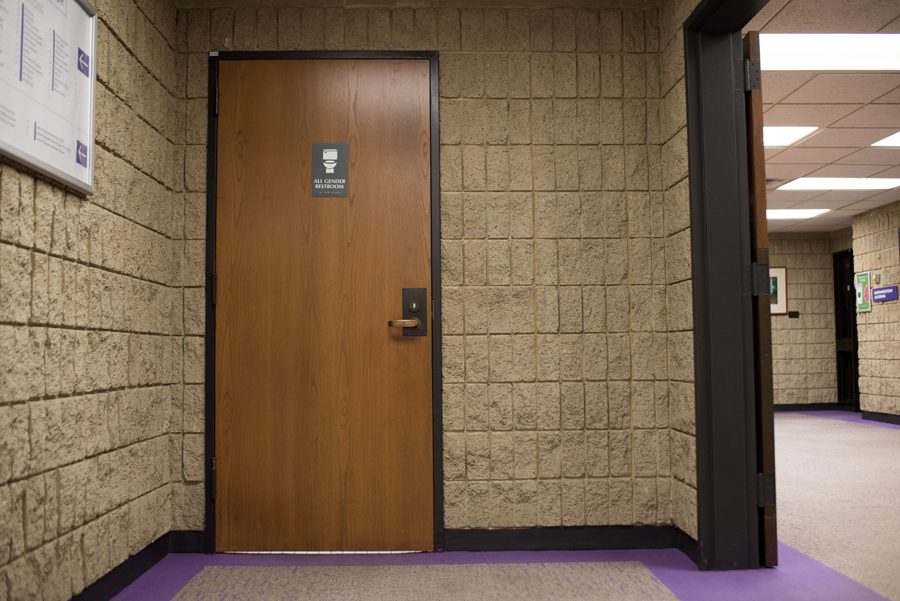Bill requiring equitable restroom access passes Illinois legislatures, waits approval from Pritzker
Evan Robinson Johnson/Daily Senior Staffer
A gender-neutral sign on a single-occupancy bathroom. A bill passed through the Illinois legislatures that would require single-occupancy restrooms be labeled as gender-neutral in public spaces.
May 22, 2019
Legislation that would ensure equitable restroom access in public spaces passed through the Illinois House of Representatives on Tuesday.
Sponsored by State Sen. Melinda Bush (D-Grayslake) and State Rep. Sam Yingling (D-Round Lake Beach), the bill would require all single-occupancy restroom facilities in public spaces to be designated as gender neutral. The bill now sits on Gov. J.B. Pritzker’s desk, waiting consideration.
If approved, Illinois would join California, Vermont and New Mexico in creating equitable restroom laws, according to a news release from Equality Illinois, the state’s civil rights organizations for LGBTQ people.
“A simple yet powerful bill, SB 556 will provide privacy, security, and convenience to users of single-occupancy restrooms, including individuals who may need the assistance of a caregiver, people with disabilities, parents with opposite-sex children, and transgender people,” said Myles Brady Davis, communications manager and press secretary at Equality Illinois.
The bill unanimously passed the Illinois Senate in April and was approved by the Illinois House with a bipartisan vote of 109-5 Tuesday. It had support from the AIDS Foundation of Chicago, Ann & Robert H. Lurie Children’s Hospital of Chicago, Chicago NOW, Chicago Restroom Access Project, Equality Illinois and Planned Parenthood Illinois Action.
According to a 2017 survey conducted by the Chicago Restroom Access Project, 79 percent of Chicago business owners found it acceptable to update the current law to designate all single-occupancy restrooms as gender-neutral. The survey also found that 51 percent thought such changes to law would have a positive impact on their business and 39 percent thought it would have no impact.
Furthermore, in 2015 the United States Department of Labor’s occupational safety and health administration designated gender-neutral single-occupancy restrooms as a best practice in the workplace.
If approved by Pritzker, the law would take effect January 1, 2020.
Email: [email protected]
Twitter: @juliaesparza10


